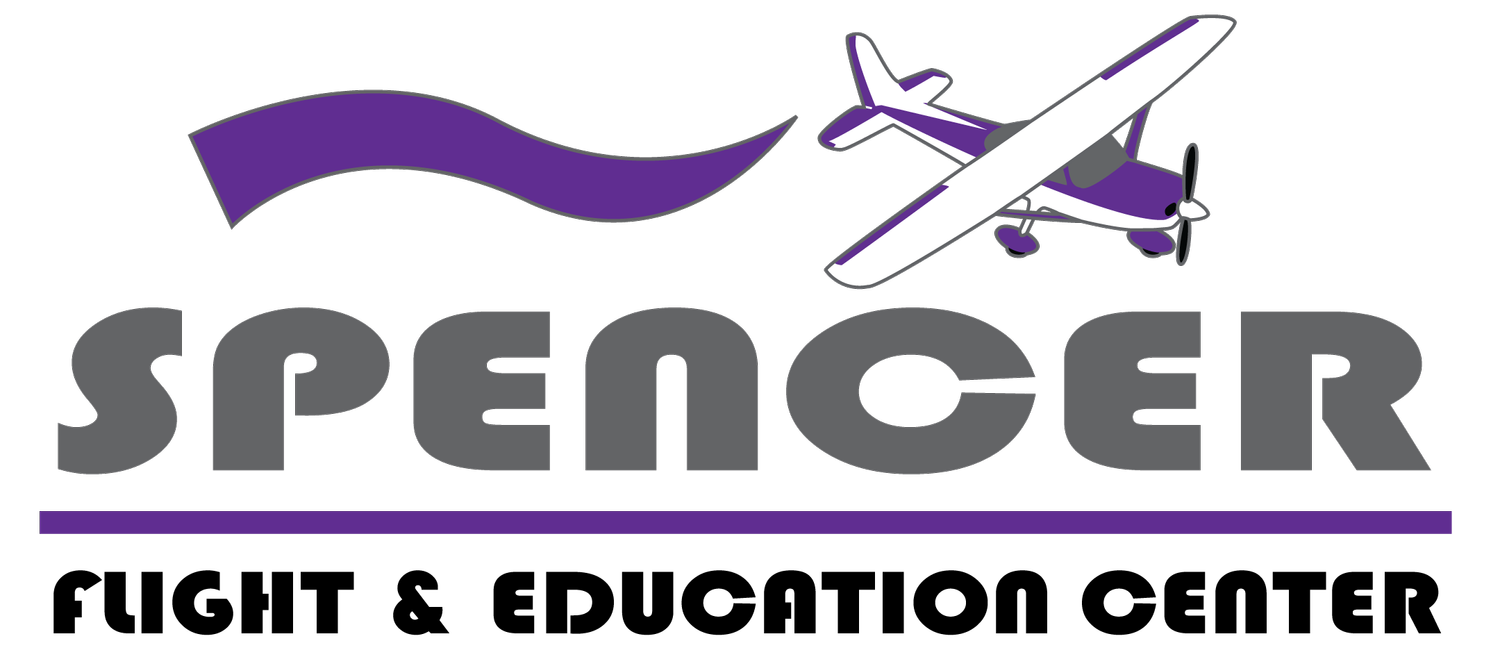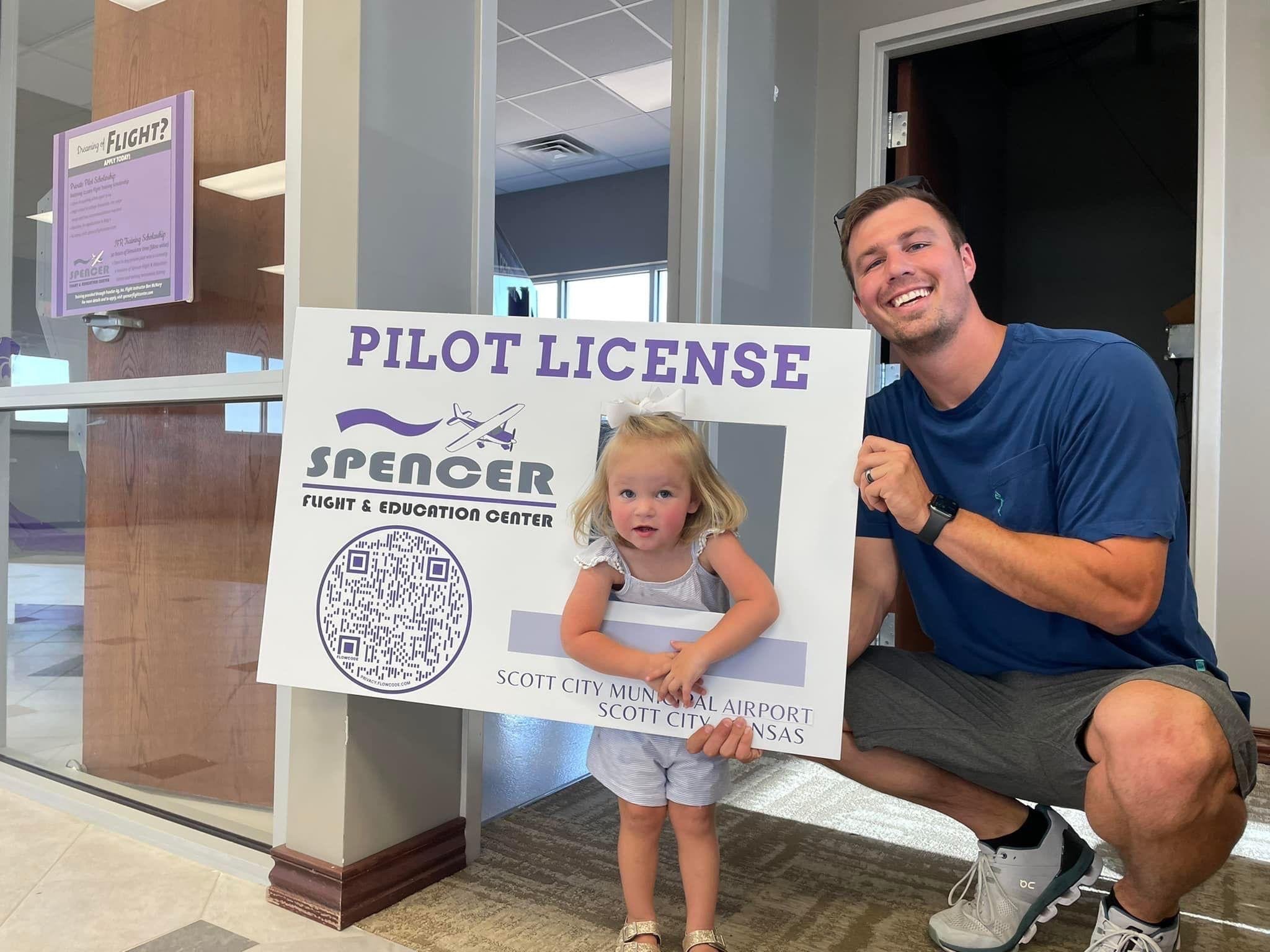<< Home • Education • IMC Club • Learn to Fly • Flight Simulator • Flight Instructors • Scholarships
Learn to Fly
How to Get Started
Since 2012, The Spencer Flight & Education Center has provided a local venue for high-quality flight instruction in addition to various educational programs and resources for individuals of all ages.
The center features a 50-person classroom and meeting space that is available for rent by outside groups.
Learn about the Flight Simulator
Find a Flight Instructor
Apply for a Scholarship
Attend an IMC Club Meeting
Discovery Flight
Available Upon Request
A short flight in training aircraft for those looking to experience flying or take a first step toward getting their pilot certificate. To learn more, please contact one of our flight instructors.
Types of Pilot Certifications
Private Pilot Certificate
Begin your journey and let your dreams take flight!
To get your Private Pilot License, you must satisfy the following requirements:
1) Basic Requirements
You must be at least 16 years old to fly solo.
You must be at least 17 years old to receive your private pilot certificate.
You must be read, speak, write, and understand English.
You must hold valid at least a third-class medical certificate.
2) Pass Written Exam
Take a ground school training course or receive ground training from an authorized instructor, and receive a logbook endorsement certifying you’re prepared for the FAA knowledge test. You must take and pass the FAA Pilot Knowledge Test with a minimum score of 70%.
3) Flight Training
Receive flight instruction on the areas of operation necessary for private pilot certificate.
4) Pass the required practical test
You must pass the FAA Practical Flight Test with a designated pilot examiner (DPE) consisting of an oral examination and check ride, as described in the Airman Certification Standards (ACS).
Instrument Rating
This add-on rating allows a pilot the ability to navigate an aircraft through limited visibility and a wide range of meteorological conditions.
. To get your instrument rating, you must satisfy the following requirements:
1) Basic Requirements
You must hold at least a private pilot certificate
You must be able to speak English
You must hold a valid medical certificate
2) Pass Written Exam
Take a ground school training course or receive ground training from an authorized instructor and receive a logbook endorsement certifying you are prepared for the FAA knowledge test. You must take and pass the FAA Pilot Knowledge Test with a minimum score of 70%.
3) Flight Training
Receive flight instruction on the areas of operation necessary for an instrument rating according to 14 CFR § 61.65 stating you must log the following:
Fifty (50) hours of cross-country flight time as pilot in command, of which 10 hours must be in an airplane AND:
Forty (40) hours of actual or simulated instrument time, of which 15 hours must be received from an authorized instructor who holds an instrument-airplane rating.
4) Pass the required practical test
You must pass the FAA Practical Flight Test with a designated pilot examiner (DPE) consisting of an oral examination and check ride, as described in the Airman Certification Standards (ACS).
Commercial Pilot Certificate
To get your Commercial Pilot Certificate, you must satisfy the following requirements:
1) Basic Requirements:
You must be at least 18 years of age.
You must hold a valid, current FAA Second-Class Medical Certificate (while you only need a Third-Class Medical Certificate as a student pilot, you will need a Second-Class Medical Certificate to operate as a commercial pilot).
You must be able to read, speak, write, and understand the English language.
You must receive the necessary training, documented in your logbook or official training records, to pass the FAA written and practical flight examinations.
You must hold at least a private pilot certificate or meet the requirements of §61.73 According to 14 CFR § 61.129
You must accumulate a total of 250 hours of logged flight time.
2) Pass Written Exam
Take a ground school training course or receive ground training from an authorized instructor, and receive a logbook endorsement certifying you’re prepared for the FAA knowledge test. You must take and pass the FAA Pilot Knowledge Test with a minimum score of 70%.
3) Flight Training
Receive flight instruction on the areas of operation necessary commercial certificate according to 14 CFR § 61.129
4) Pass the required practical test
You must pass the FAA Practical Flight Test with a designated pilot examiner (DPE) consisting of an oral examination and check ride, as described in the Commercial Pilot Airman Certification Standards (ACS).






